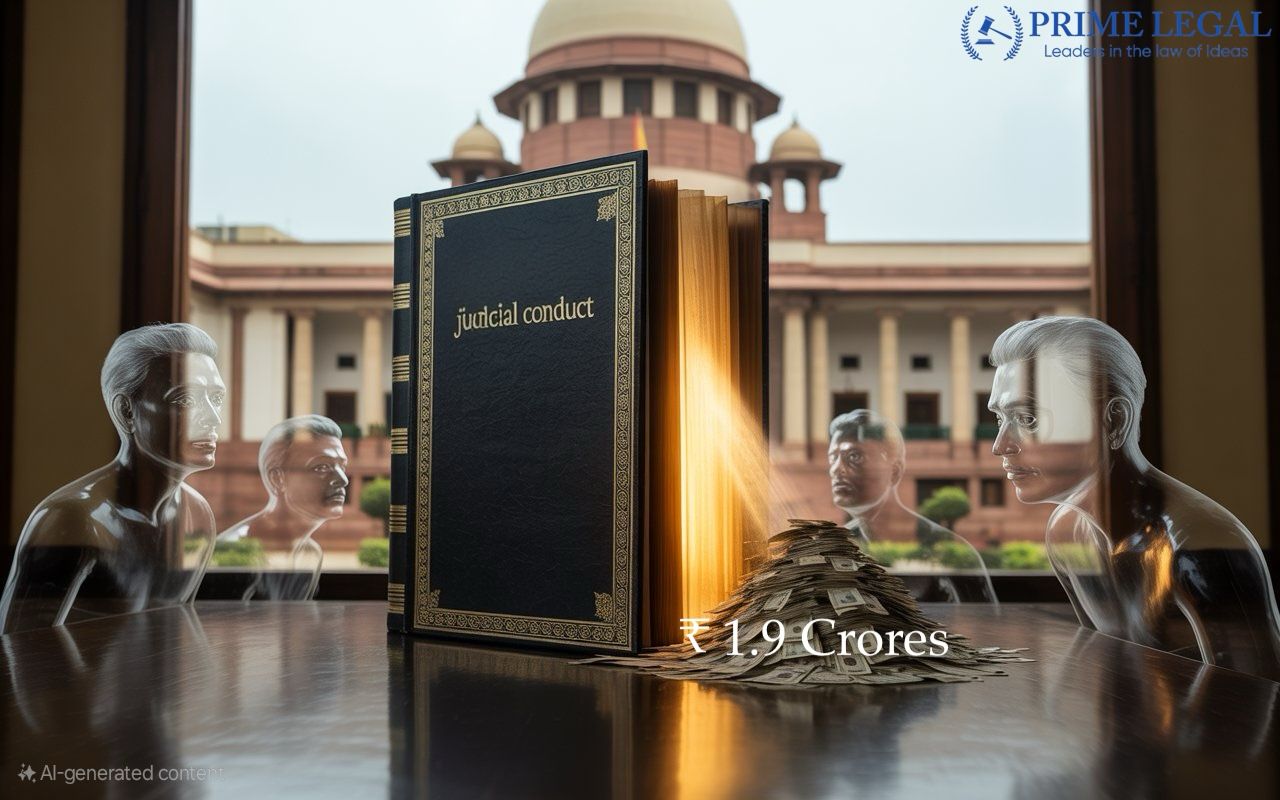Introduction
In a rare move, the Supreme Court of India chose a course of retraining for some Delhi High Court judges who granted bail in a case involving ₹1.9 crore fraud. The Court characterized this as a grave judicial error because it deviated from standard principles for granting bail in major economic offences. Even though bail was denied in an earlier hearing, and the case had sufficient evidence that the accused had committed some fraudulent activity, the Delhi High Court granted bail to the accused, without properly assessing the depth of the matter. This, in turn, let the Supreme Court to interfere and reiterate that judicial accountability and professional training are vital. The case illustrates the challenge in dealing with complex financial crimes and highlights how crucial is the role of courts in upholding necessary legal standards.
Background
The case at hand is a fraud case in which the accused was bailed out of the Delhi courts under very dubious circumstances, despite the existence of strong prima facie evidence implicating his involvement in a fraud worth ₹1.9 crores. He posed as a high-profile person to gain the trust of a businessman and in this way committed a massive cyber fraud. The bail granted to the accused was first given by the Delhi High Court while the investigation established serious and substantial allegations relating to deception and misappropriation.
This leniency shown by the judiciary in respect of economic offences where considerable and significant monetary loss has happened, has caused major moral outrage. The Supreme Court then recorded the complaints and even stated that the bail order reflected a lack of judicial standard and indifference to proper judicial caution. The Supreme Court commented on the seriousness of these inappropriate bail orders that could permanently undermine public confidence in the judiciary and the rule of law, and recommended institutional reforms, including retraining of judges.
Key Points
- The Right to Bail is not Absolute: The Supreme Court reiterated that in all circumstances there must be a thoughtful determination of bail with regard to the offence and the seriousness of the alleged crime. For example, in financial misdemeanours, the accused could obscure evidence or escape the judicial process, should they be released on bail. The Court noted a distinction between “bail” and protecting the interests of society, according to Sections 437 and 439 of the Code of Criminal Procedure (CrPC).
- Judicial Accountability in Financial Cases: With the increase of complexity in, and the frequency of forensic and financial fraud, the Court urged that judicial officers be fully competent in all aspects of these matters; including properly weighing evidence before assessing the decisions involved in freedom and release principles in cases of bail. The decision considered well known cases such as Siddharam Satlingappa Mhetre v. State of Maharashtra (2011) 1 SCC 694, and Sanjay Chandra v. CBI (2012) 1 SCC 40, to state the courts will create strict controls over organized financial crime with bail requirements.
- Errors in Judicial Reasoning: The Court stated that the lower courts had not properly looked at informative and relevant factors, such as – the accused’s modus operandi, the degree of complexity of the fraud committed, the risk of tampering with evidence, and the impact upon victims. This failure in analysing the details of a case properly is an improper use of the court’s discretion in adjudicating bail applications.
- Need for Specialized Judicial Training: The Supreme Court suggested that the judiciary currently is in need of updated judicial education with regard to unique aspects of cyber fraud and the adjudication of economic offences. This measure aims to ensure that such judicial reasoning is not repetitive and to improve the method of dealing with economic crimes more effectively.
Recent Developments
The Supreme Court of India has issued an extraordinary order requiring the retraining of Delhi judges involved in awarding the debased bail. The course will involve a curriculum addressing forensic examination of evidence of fraud, bail jurisprudence, and the protection of criminal procedure in economic offence cases.
This landmark order reflects the Court’s commitment to uphold judicial quality and accountability to advance judicial oversight and education. The Supreme Court has reiterated that bail determinations in cases involving financial crimes should be strict and in accordance with principles that protect the interests of the public and efficiency of the criminal justice system.
The order has created considerable interest within the legal community and initiated discussions on broader institutional reforms regarding more formalized judicial assessments of performance, and more continuing legal education for judicial officers when dealing with special cases, such as cyber fraud and economic offences.
Conclusion
The Supreme Court’s instruction for the retraining of judges in the wake of wrongful bail grant in a ₹1.9 crore fraud case is an important example of exercising judicial accountability. It is a sign that a higher degree of care and responsibility is required when it comes to economic offences where public confidence and the rule of law are involved, and that the judiciary acknowledges such responsibility and is taking active measures to ensure it.
The Court has also emphasized the importance of enhancing judicial training and evolving standards for bail with respect to economic offences. It is also expected to shape the response to future offences of an economic nature and, by doing so, strengthen India’s criminal justice system altogether.
“PRIME LEGAL is a full-service law firm that has won a National Award and has more than 20 years of experience in an array of sectors and practice areas. Prime legal falls into the category of best law firm, best lawyer, best family lawyer, best divorce lawyer, best divorce law firm, best criminal lawyer, best criminal law firm, best consumer lawyer, best civil lawyer.”
WRITTEN BY Stuti Vineet


